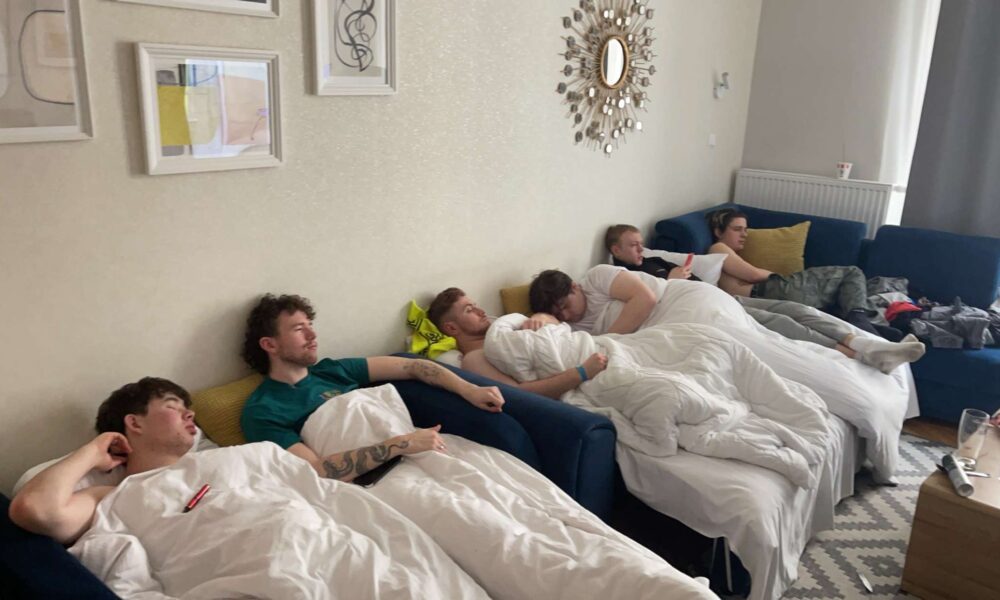Where you stay while travelling is more than just a bed for the night—it’s a core part of the experience. The types of accommodation you choose can shape your connection to the place, affect your comfort, and even impact your budget. Whether you’re seeking cultural immersion, social encounters, or simply a place to recharge, finding the right type of accommodation can make all the difference.
Table Of Content
- Hotels
- Overview
- Pros
- Cons
- Tips & Tricks
- Hostels
- Overview
- Pros
- Cons
- Tips & Tricks
- Guesthouses and B&Bs
- Overview
- Pros
- Cons
- Tips & Tricks
- Holiday Rentals (e.g., Airbnb)
- Overview
- Pros
- Cons
- Tips & Tricks
- Camping and Glamping
- Overview
- Pros
- Cons
- Tips & Tricks
- Unique Stays (Treehouses, Host Farms, etc.)
- Overview
- Pros
- Cons
- Tips & Tricks
- Choosing the Right Type for Your Trip
- Conclusion
- Related
In this guide, we’ll explore various types of accommodation, from hostels and hotels to unique stays, covering budget ranges, quality, and what each option can offer. Let’s dive in and find out which type will enhance your travel experience.
Hotels
Overview
Hotels have been a travel staple for centuries—the first officially recognised hotel, Nishiyama Onsen Keiunkan, opened in Japan in 707. Hotels offer a broad range of styles, from luxurious beach resorts and corporate accommodations to practical city-centre bases. Unlike other types of accommodation, hotels often provide a reliable level of comfort and service, no matter where you book.
Pros
- Consistent quality standards, especially in branded hotels.
- Privacy with private rooms and bathrooms.
- Amenities like housekeeping, room service, and concierge.
- Widely available in most destinations.
Cons
- Higher cost, especially in popular areas.
- Limited opportunity to meet other travellers compared to social stays.
- Less flexibility with check-in/check-out times.
- Extra charges for amenities like parking, Wi-Fi, and breakfast in some places.
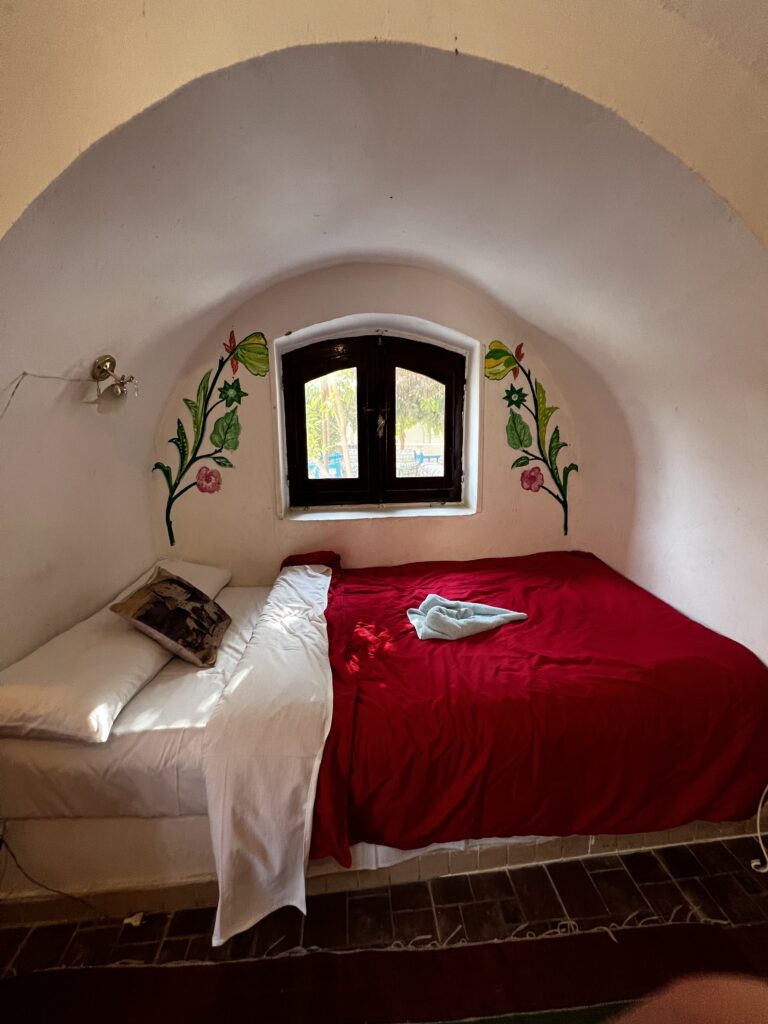
Tips & Tricks
When booking hotels, sticking to major sites like Booking.com, Hotels.com, Trivago, KAYAK, Lastminute.com, and Expedia is a reliable approach. These sites offer a wide variety, making it easy to compare locations, prices, and reviews to find the best fit for your trip.
Location is crucial when choosing a hotel. Often, opting for a hotel a short distance from key attractions or transport links can be more valuable than one in a prime but pricier spot. Also, be sure to check any specific rules—for instance, some beach resorts may have age restrictions, which could impact your plans if you’re looking for a quiet, adults-only getaway.
For those willing to splurge, a high-end hotel experience can be unforgettable, with options for personal butlers, bespoke experiences, and even in-room jacuzzis. Have any unique hotel memories? I’d love to hear about them on my contact page.
Hostels
Overview
Hostels are one of the most social types of accommodation, ideal for budget-conscious travellers looking to meet others along the way. While dorm-style rooms and shared bathrooms aren’t for everyone, hostels are known for creating a community feel. From personal experience, they offer a crash course in socialising on the go.
Pros
- Highly affordable, with options for shared dorms and private rooms.
- Vibrant social environment, perfect for meeting fellow travellers
- Often located near popular attractions in cities worldwide.
Cons
- Limited privacy, especially in dorm rooms.
- Noise levels can vary, particularly in shared spaces.
- Fewer amenities compared to hotels, such as daily room service.

Tips & Tricks
Booking through Hostelworld is the easiest and most reliable way to find a hostel that suits your needs. The platform’s group chat feature is a fantastic way to connect with other travellers even before you arrive, making it easy to find people for activities or sightseeing.
To make the most of hostel life, it’s essential to pack earplugs, an eye mask, and a pair of sliders for shared showers. If you’re more on the introverted side (like myself), embracing hostel culture can feel daunting, but taking the first step to say “hello” often leads to great travel stories. Check out my guide on ways to meet people while travelling solo for more ideas on making friends on the road.
Guesthouses and B&Bs
Overview
If you’re after a more culturally enriching and local experience, guesthouses and B&Bs (short for bed & breakfast) are where it’s at. These stays give you the chance to keep costs down while soaking up the local way of life. During my 10-day trip around Iceland, I opted for a few guesthouses, which worked perfectly for those days when I wanted a bit more comfort and privacy than a hostel would offer.
Pros
- Homey feel with a personalised touch—think local insights straight from the hosts.
- Often includes breakfast, and let’s face it, a hot morning meal never hurts!
- Quieter vibe, with fewer guests than hotels, making it ideal for a low-key stay.
Cons
- Limited amenities, with breakfast as the main meal offered.
- Quality can vary, as you’re often staying in smaller, independent setups.
- Less chance to meet other travellers, but it is a step up from hotel anonymity.
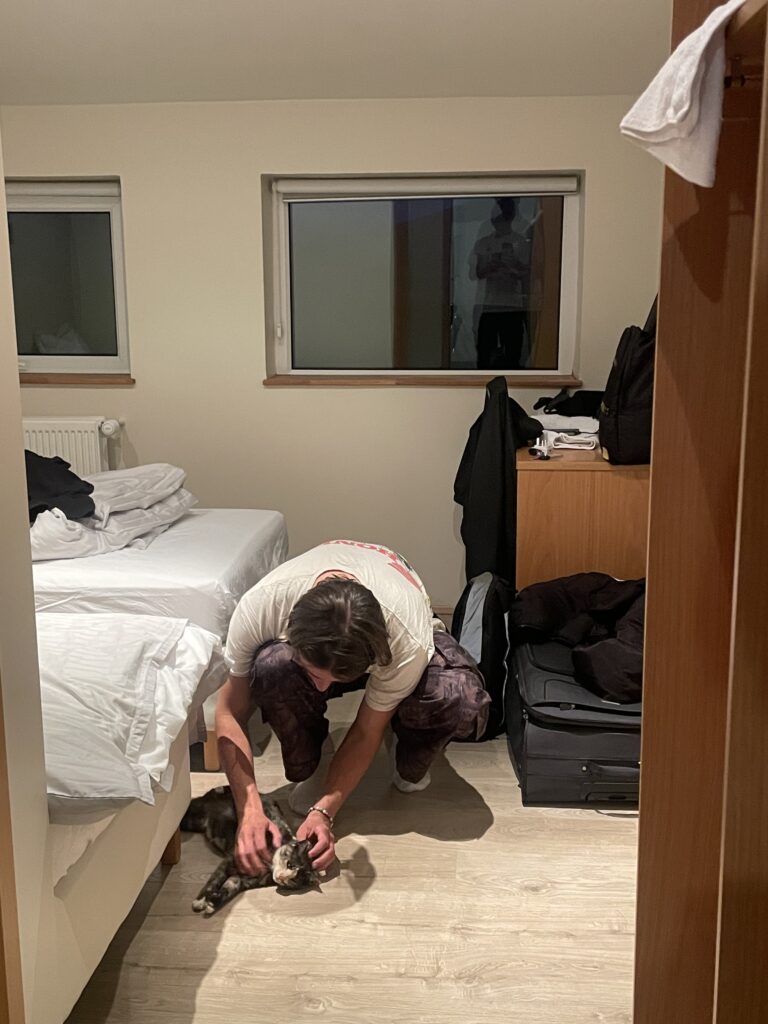
Tips & Tricks
Guesthouses and B&Bs can vary quite a bit in quality, so it’s worth paying attention to reviews before booking. Sites like Booking.com and Expedia are helpful for finding the right fit and often offer support if anything goes amiss.
While you might not find the luxuries or 24/7 service that hotels offer, guesthouses provide a kind of warmth you don’t get elsewhere. Plus, you can go as social or as private as you like. With friendly hosts and small guest lists, you’re likely to get recommendations that really add to your experience.
Holiday Rentals (e.g., Airbnb)
Overview
Renting a place for a weekend, a week, or even longer can give you the ultimate flexibility on a trip. With platforms like Airbnb offering everything from budget flats to luxurious villas, you’re bound to find something that suits your needs. I recently stayed in an Airbnb villa with friends in Rhodes, Greece. The host was, well, let’s just say a bit of a handful, but the place itself was great and didn’t put me off using Airbnb again.
Pros
- Flexibility and independence, often with kitchen facilities.
- Good for longer stays or groups/families needing more space.
- Diverse options, from apartments to full houses.
Cons
- Hidden fees (looking at you, cleaning fees) can push up the final cost.
- Quality varies depending on the host, so it’s a bit of a gamble.
- Limited customer service compared to the consistency and service of hotels.
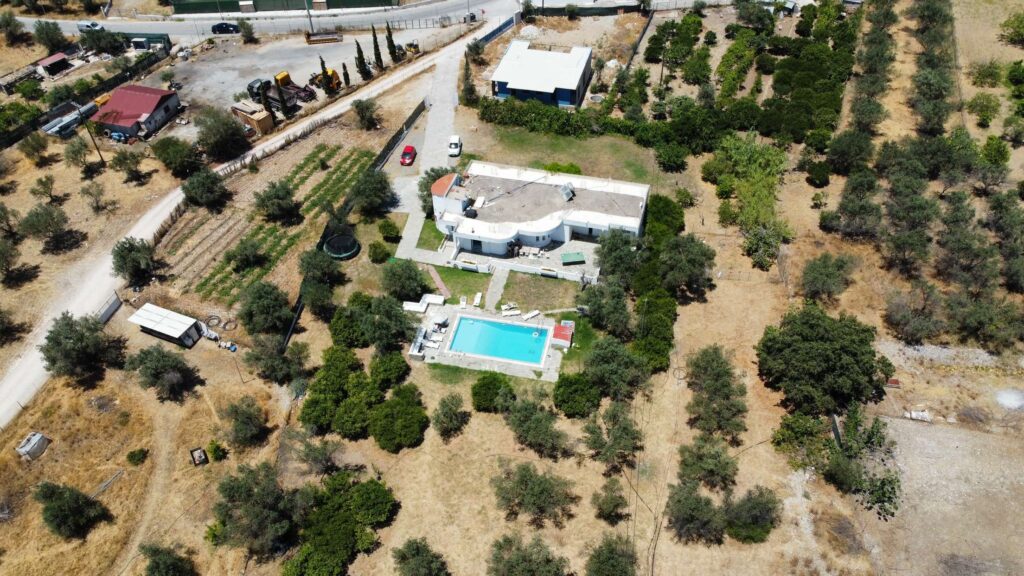
Tips & Tricks
Holiday rentals can be ideal if you’re travelling with others and can split the costs. Do your research before booking—checking both reviews and the host’s rating is key. I’ve learned this one the hard way; a sub-5-star review can sometimes mean extra ‘surprises’ that might not be worth the hassle.
Don’t let a few mixed reviews put you off, though. I’ve had some great stays in Airbnbs, including a lovely annex in Southern Wales where the host was fantastic. If you’re considering a trip there, I’d recommend this one as an option.
Camping and Glamping
Overview
Camping is a favourite of mine, and it’s how I’ve spent the past four birthdays—with friends, a tent, and a whole lot of outdoors. While I haven’t tried glamping, it seems perfect for those who love the idea of being in nature but aren’t ready to fully rough it. Camping may lack the comforts of other accommodation types, but it’s ideal for anyone wanting to reconnect with nature.
Pros
- Budget-friendly, especially for traditional camping.
- Perfect for immersive nature experiences in scenic areas.
- Great choice for adventurous travellers or those seeking a break from city life.
Cons
- Very weather-dependent—bad weather can make things challenging.
- Requires a bit of prep and equipment.
- Limited amenities; camping really is a ‘back-to-basics’ experience.
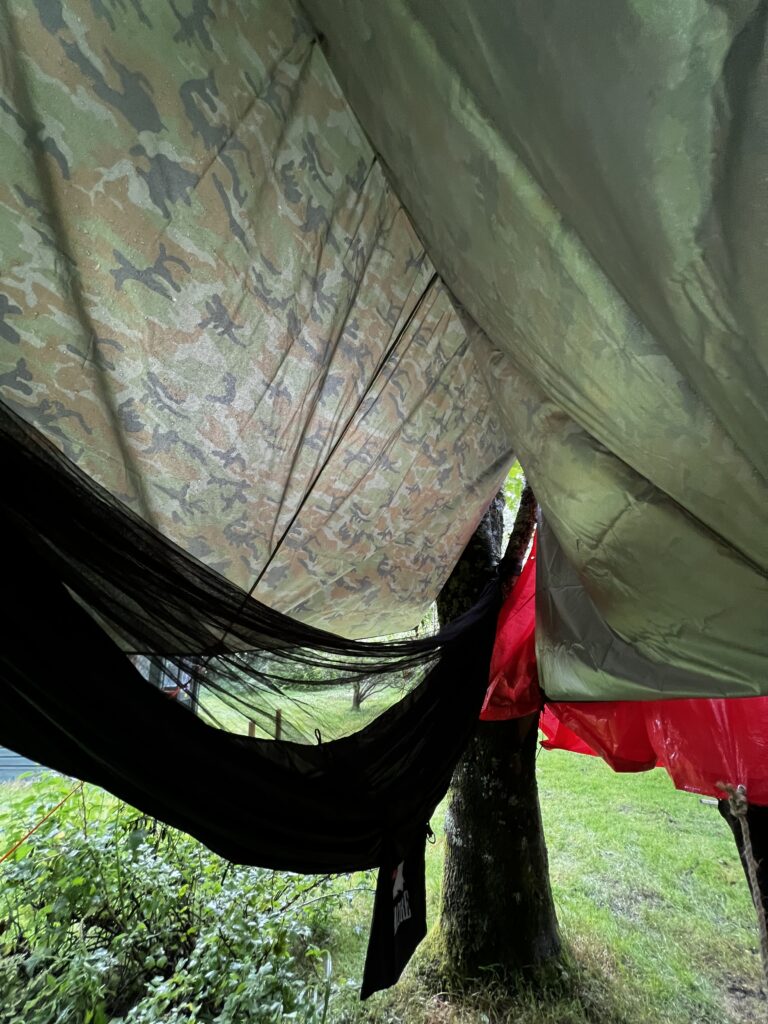
Tips & Tricks
Preparation is key with camping. Make sure your tent, hammock, or whatever setup you have is ready to go before you leave. Good-quality gear, like what you can find at Mountain Warehouse, goes a long way in ensuring a comfortable experience. And don’t forget essentials like a reliable coat and sturdy walking boots.
If you’re interested in camping within the UK, you might want to check out my guide on hiking in Wales, which covers some local camping insights. Overall, as long as you go in with the right mindset and a little bit of grit, camping can make for some unforgettable travel moments.
Unique Stays (Treehouses, Host Farms, etc.)
Overview
Unique stays offer a refreshing twist to conventional accommodation, creating memories that last far beyond the trip. From sleeping pods in Tokyo to treehouses in the wilderness, these options cater to those looking for something out of the ordinary. On Airbnb, for example, you can explore the OMG section on their home page for quirky options like a dock crane—the Funnel—or converted buses, treehouses, and even hobbit huts.
Pros
- A memorable, one-of-a-kind experience.
- Often located in scenic or unusual areas, like forests or historic landmarks.
- Adds a special touch to any trip, perfect for couples or families.
Cons
- Can be expensive compared to standard accommodation.
- Booking far in advance is often necessary due to demand.
- Not ideal for all travellers (e.g., mobility limitations for treehouses).
Tips & Tricks
Unique stays are all about the experience, so be prepared to embrace the quirky and unusual! Checking reviews is key, as amenities can be hit or miss. Budget a bit extra, as these stays often prioritise novelty over standard comforts. For families or those celebrating a milestone, a unique stay could make the occasion unforgettable.
Choosing the Right Type for Your Trip
Choosing the right accommodation can shape your entire travel experience. Different types of accommodation fit various situations, and each one has unique perks and challenges. If you’re new to some of these options, I’d recommend giving each a try at least once—you might surprise yourself with what you enjoy.
For example, solo travellers might find hostels ideal for meeting people, while couples might prefer the privacy of a cosy guesthouse or a unique stay. Families may lean towards the convenience of holiday rentals or hotels, with space and amenities that keep everyone comfortable.
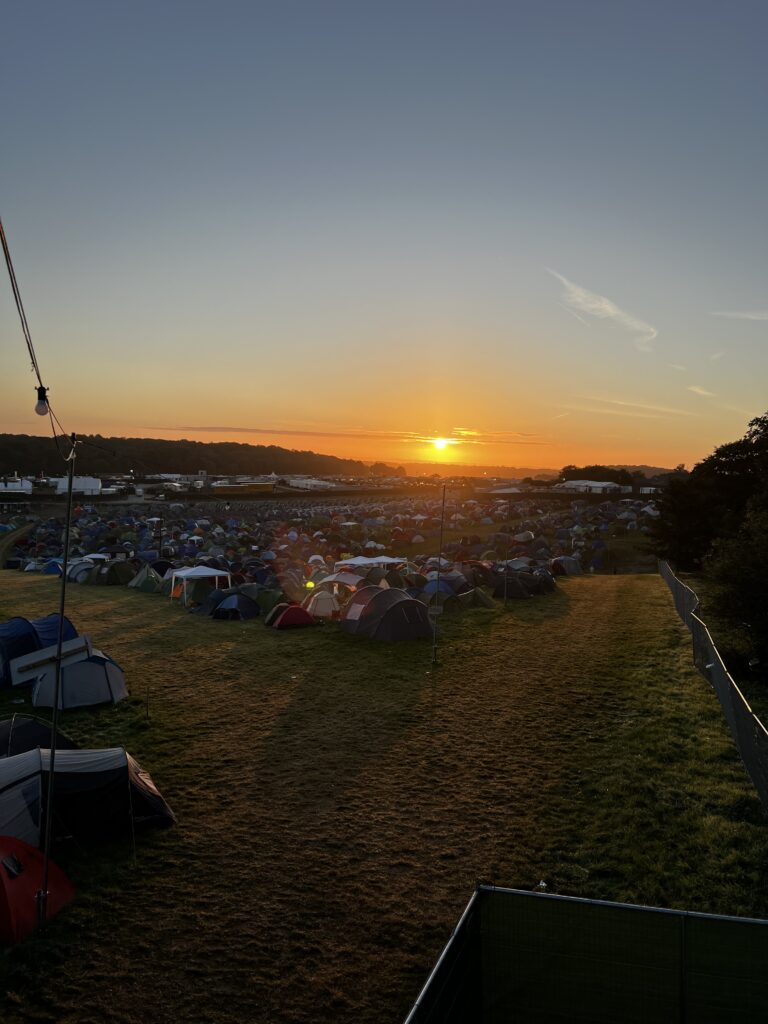
Budget will play a big part too, and sometimes a lower price doesn’t mean sacrificing experience. Types of accommodation like hostels and guesthouses often cost less while providing a rich, local feel. On the other hand, if you’re celebrating something special, it might be worth splurging on a unique stay or boutique hotel that adds to the occasion.
Whether you’re after a peaceful retreat or a social adventure, try to find accommodation that complements your trip’s purpose. And remember to watch out for hidden fees, particularly on sites like Airbnb where cleaning and service fees can add up. Reading reviews is essential too; after my host mishap in Greece, I always double-check what past guests have to say!
Conclusion
Not all types of accommodation made it onto today’s list—like cruises, for instance. Cruises can be a love-it-or-leave-it choice, and while I’ve heard both positive and negative reviews, they don’t personally appeal to me. But each traveller is different! The key takeaway here is to weigh your options, keeping in mind the purpose of your trip and the experiences you want.
Planning for a group? It’s a bit more involved, but worth it if done right. I’ve put together a guide on group trip planning here if you’re interested in tips on keeping everyone happy and organised.
So, as you plan your next adventure, think about what accommodation type suits you best. Each option offers something unique, from budget-friendly hostels to memorable stays in lighthouses or treehouses. Whatever you choose, a bit of planning and flexibility will help you make the most of it.
Safe travels!
Tom.

